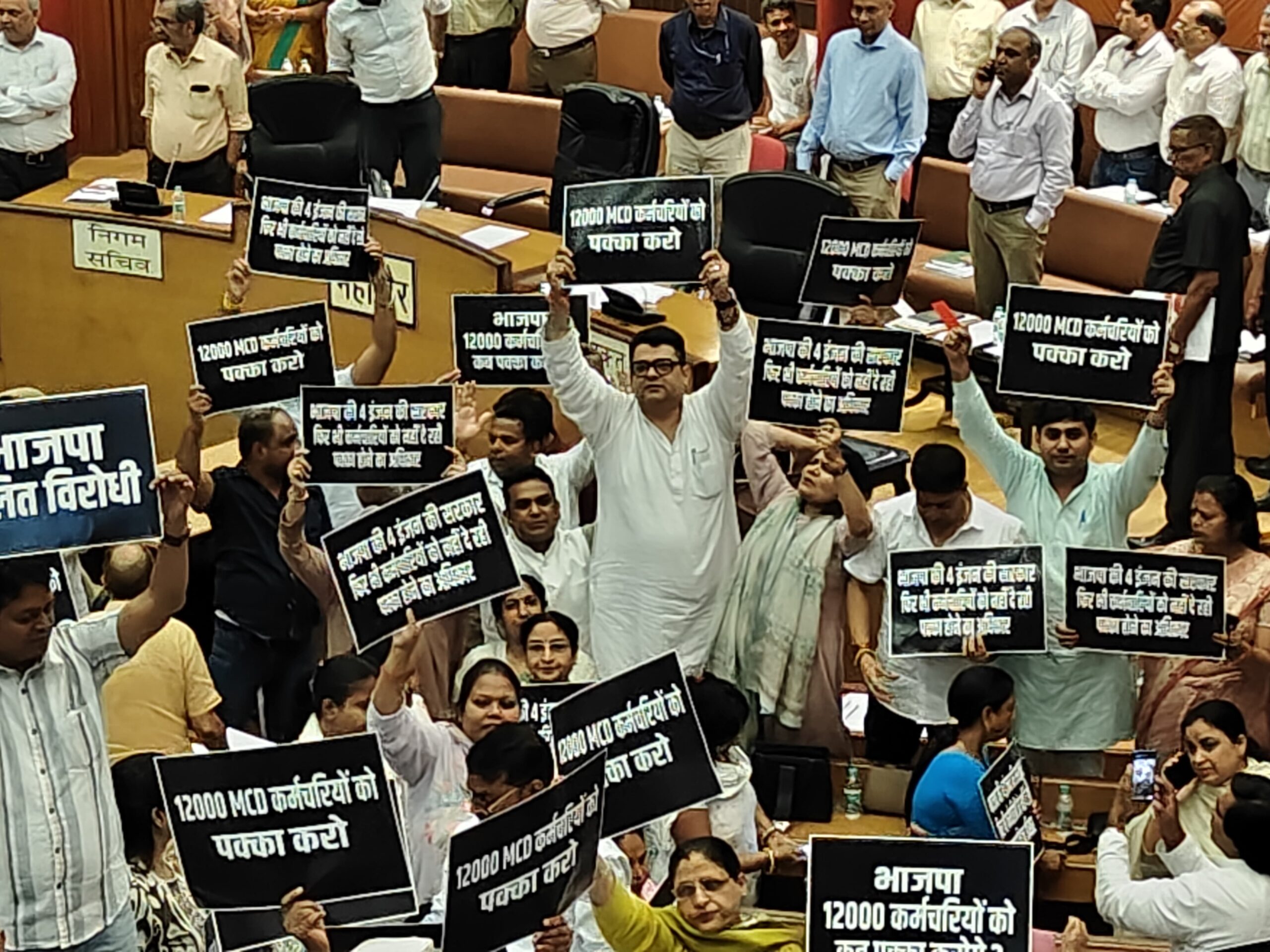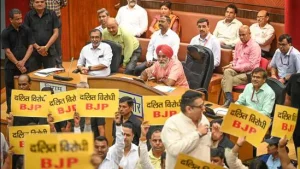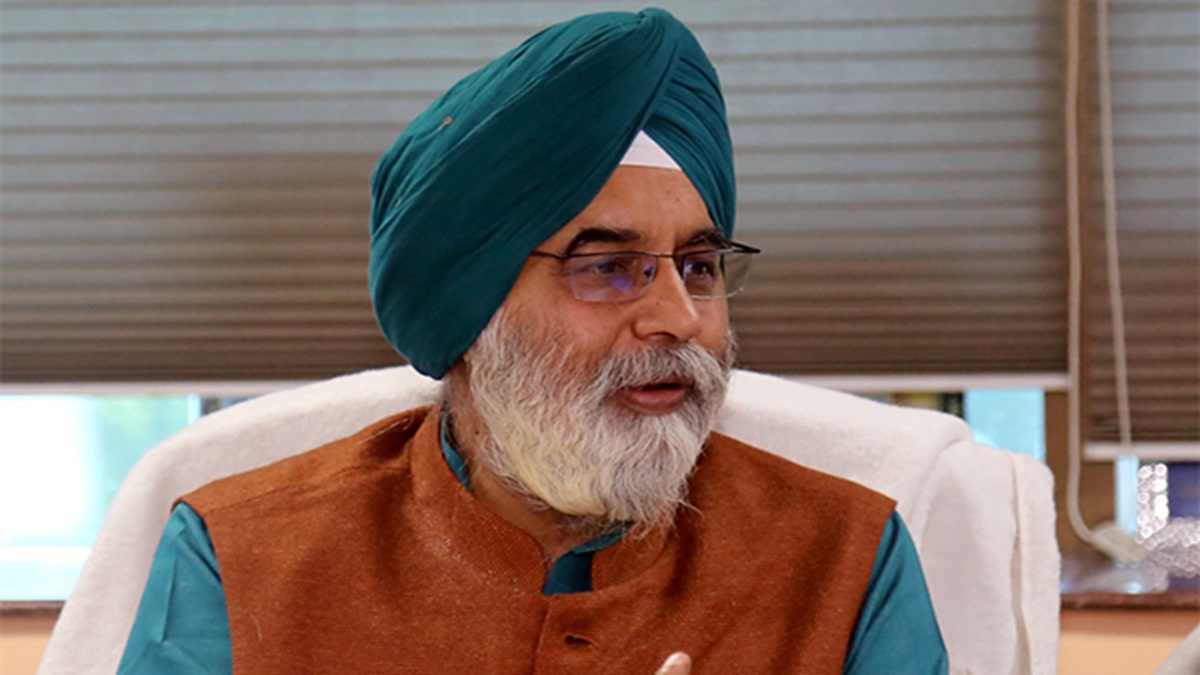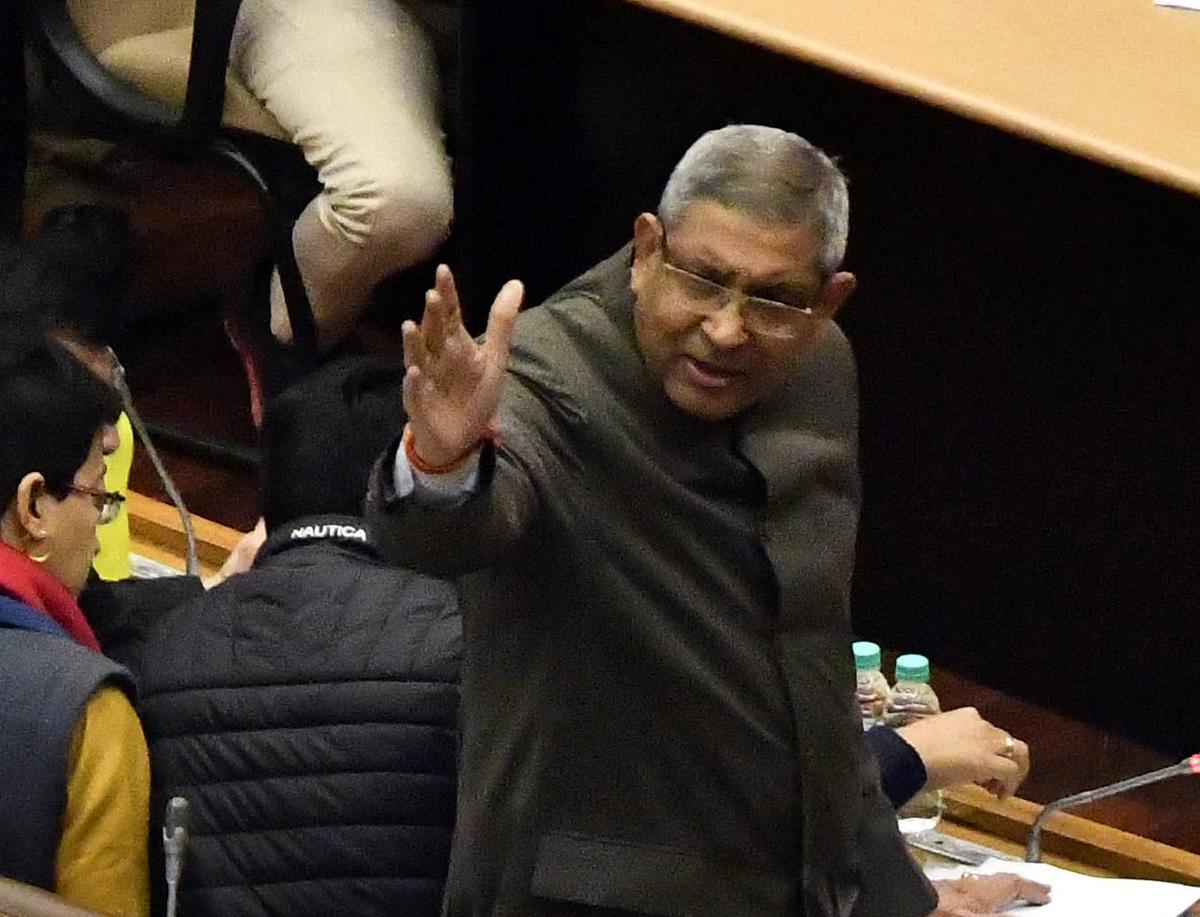New Delhi – The MCD House Uproar dominated Thursday’s special session of the Municipal Corporation of Delhi, which was abruptly adjourned following intense protests by Aam Aadmi Party councillors. The dramatic confrontation centered around the controversial reduction of members in the Welfare of Scheduled Castes and Implementation of Scheduled Castes Candidates Quota ad-hoc committee, sparking a fierce political battle between the ruling BJP and opposition AAP.
Despite the MCD House Uproar, the session managed to achieve its primary objective of constituting 12 special and 11 ad-hoc committees after all nominations were declared valid. However, the political drama overshadowed these administrative achievements as tensions escalated between the rival parties.
Core Issue Behind the Political Storm

The MCD House Uproar was triggered by allegations from Leader of Opposition Ankush Narang, who claimed that the Bharatiya Janata Party had strategically reduced the number of members in the scheduled caste committee from 35 to 21. According to Narang’s accusations, this reduction was a calculated move designed to ensure that the committee’s chairman position would be secured by a BJP representative.
This controversy became the focal point of the MCD House Uproar, as AAP councillors viewed the reduction as a deliberate attempt to undermine representation for scheduled caste interests. The opposition party’s strong reaction demonstrated their commitment to protecting what they perceived as fair representation in crucial municipal committees.
Dramatic Protest Scenes


The MCD House Uproar reached its peak when AAP councillors staged a coordinated protest during the session. As the leader of the House presented the proposal for nominating three members each to the scheduled caste and education committees, opposition councillors responded with visible demonstrations of dissent.
The protesting councillors held up placards and chanted slogans, creating a chaotic atmosphere that characterized the MCD House Uproar. This dramatic display of opposition effectively disrupted the proceedings and forced the early adjournment of what was supposed to be a routine administrative session.
Also Read: Big Update: Centre Reached Out VP Dhankhar Hours Before His Resignation
Mayor’s Response and Accusations


Following the MCD House Uproar, Mayor Raja Iqbal Singh held a press conference to address the controversy and defend the BJP’s position. Singh criticized the AAP for their protest tactics, arguing that the opposition party had adequate opportunity to discuss the issue during the previous session but had failed to do so.
The Mayor’s response to the MCD House Uproar included sharp criticism of AAP’s past performance in municipal governance. Singh specifically highlighted that during AAP’s 2.5-year control of the MCD, the party had deliberately prevented the formation of Special and Ad-hoc Committees, suggesting hypocrisy in their current protests.
Multi-Party Perspectives on the Controversy


The MCD House Uproar drew commentary from multiple political parties, including the Indraprastha Vikas Party. Councillor Mukesh Goyal offered a critical perspective on AAP’s claims of supporting Dalit interests, pointing out inconsistencies in their actions versus their rhetoric.
Goyal’s assessment of the MCD House Uproar included the observation that if AAP was genuinely concerned about Dalit councillors’ interests, they should have ensured their Dalit representatives were nominated for other committees, which they had failed to do. However, he also acknowledged that the BJP should have conducted discussions with opposition parties before reducing the scheduled caste committee membership.
Committee Formation and Structure
Despite the MCD House Uproar, the session successfully established a comprehensive committee structure for municipal governance. The 12 special committees cover crucial areas including medical relief and public health, appointment and promotion matters, disciplinary procedures, and environment management services.
The ad-hoc committees formed during the MCD House Uproar session address various municipal functions such as community services, anti-malaria measures, and the important task of naming and renaming streets throughout Delhi. These committees represent essential administrative functions that had been delayed due to political disputes.
Election Timeline and Process
The MCD House Uproar has not derailed the planned election process for committee leadership positions. July 31 remains the deadline for filing nominations for chairperson and vice-chairperson positions across all special and ad-hoc committees. The actual elections are scheduled to take place on August 6 and 7, despite the controversy surrounding committee composition.
This timeline suggests that the MCD House Uproar represents a temporary disruption rather than a fundamental obstacle to municipal committee formation and operation.
Historical Context and Delays
The MCD House Uproar occurs against the backdrop of significant administrative delays that have plagued Delhi’s municipal governance. The formation of these committees comes after more than two and a half years of delays caused by ongoing legal and political disputes that have characterized MCD operations.
These extensive delays, which preceded the current MCD House Uproar, had left numerous important municipal processes in limbo. The prolonged absence of properly constituted committees had prevented effective governance and decision-making in crucial areas of municipal administration.
Future Implications
The MCD House Uproar highlights deeper political tensions that may continue to affect municipal governance in Delhi. The controversy over scheduled caste committee representation reflects broader issues about political representation and power-sharing in municipal institutions.
As the August elections approach, the MCD House Uproar may influence campaign strategies and political alliances. The resolution of this controversy will likely set important precedents for future committee formations and inter-party cooperation in Delhi’s municipal governance, making the upcoming elections particularly significant for the city’s administrative future.

